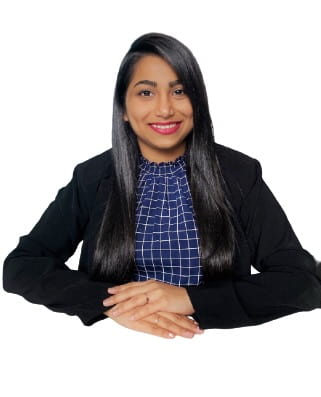
Alumni Series: an Interview with Sayli Dabholkar
Jarrad Merlo
Sayli Dabholkar completed her Master of Applied Linguistics in 2017 at the School of Languages and Linguistics, University of Melbourne. Sayli is currently working as a Skill Architect at Duolingo.
Jarrad interviewed Sayli about her experience doing her master’s degree and the jobs she has taken up post-graduation.
***
What did you study at Uni Melbourne and what was your major?
I did my Master of Applied Linguistics in 2016 and graduated at the end of 2017. My specialization was Language Testing because that was what I was always interested in. Initially, I considered Technology and Language Learning, which seemed interesting, but I stuck with Language Assessment because Carsten was such a great teacher.
Why were you interested in Language Testing?
I studied French first, then German, and was always intrigued and fascinated by how language tests targeted each level. In India until 12th standard, there wasn’t a specific syllabus, so when I studied at the Alliance Française, they taught and tested us about everything, but somehow it was still consistent, which was fascinating to me. That was when I first started thinking about Language Testing and how it worked. After I did my Bachelor’s, I knew I wanted to do something with languages, and Language Testing just seemed like something I was interested in.
***
What did you do after you graduated?
I did an internship at E2 (a Melbourne-based English language test prep company) while I was studying and started in a customer support role, which gave me an idea of how the company worked and what problems students faced with the products that were already on offer. Slowly, I transitioned more into content writing and then completely into content and curriculum after a few months, writing questions and items for PTE, IELTS, and eventually rebooting the TOEFL course. There was also instructional design and a little bit of general English.
And did you enjoy item writing?
Yes, it’s still one of my favourite things to do – trying to figure out what you need to test and making sure that you’re only testing one thing, and there’s no other variables involved was really exciting.
Do you think that the theory that you learned in Language Testing helped you in the real world?
Oh, yes, for sure. I feel like everything from the language used in the industry to understanding how these tests work and even assessing the quality of practice materials, I learned through the theory that was taught.
***
How did you get your job at Duolingo? And what is a day in the life of working at Duolingo like for you?
I just applied. Initially, they had a position for the Indian market and then narrowed it down to developing an English course for Hindi speakers, which I started working on, and after a year and a half, they are adapting that course for different Indian languages like Bengali, Punjabi, and Telugu.

I work as a “Skill Architect”, which involves curriculum design and lesson planning. We design a framework for the lessons, and the AI chooses different items to structure the lesson for the user based on their needs. It’s very adaptive, and it saves teachers a lot of time. However, we know how the AI works because it affects how we design the course, but we don’t really know much about the technicalities of it. That’s taken care of by the engineers and developers.
Does Duolingo take into consideration first language interference?
Yes, their model is based on it. The app tries to find similarities and differences between languages, and the translations work based on that. They leverage first language interference as a good thing and try to avoid anything that could cause complications.
What are your thoughts on the Duolingo English test?
I think it’s a great idea that has been accepted by more and more universities. The mission of Duolingo is accessible education for everyone everywhere. Other tests are still kind of expensive, which makes it unfair for people who might not be able to afford them. The Duolingo English test is cheap and accessible, making it a great opportunity for people who can’t afford other tests.
Thank you so much for speaking with me, Sayli!
Thank you.